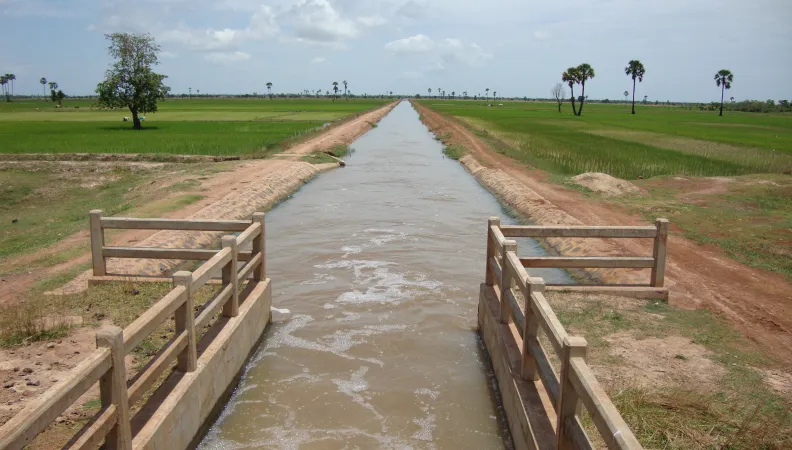Share the page
Improve agricultural yield in rural areas
Project


-
Project start date
-
Status
Completed
-
Project end date
-
-
Project duration
-
5 ans
-
AFD financing amount
-
€ 20 000 000
-
Country and region
-
Location
-
Phnom Penh
-
Type of financing
-
Beneficiaries
-
Ministry of Water Resources and Meteorology (MREM)
To combat poverty and food insecurity, AFD is assisting the Cambodian authorities in devising an agricultural policy. The Agency is also helping to implement a programme to renovate irrigation infrastructure and adapt to climate change.
Context
In Cambodia, 80% of the population lives in rural and agricultural areas. Yet agriculture, which is the main source of income, is characterised by low productivity and a lack of diversification. Rice occupies about 90% of the agricultural area, but is produced only during the wet season. In addition, a large part of the existing irrigation infrastructure is poorly maintained: fewer than half of Cambodia’s 400 irrigation schemes are operational. Conscious of the challenges in terms of the fight against poverty and the potential for irrigation, the government of Cambodia is committed to a sectoral water policy. The state, local authorities and users work together for the management and maintenance of infrastructure.
Description
This project has four objectives:
- Implementation of the sectoral irrigation policy of the Ministry of Water Resources and Meteorology (MREM) through the rehabilitation of 11,000 hectares of small and medium-sized irrigated areas and 5,000 hectares of rivers (prek) in Kandal province;
- The management, operation, maintenance and sustainable development of these renovated perimeters;
- Support for the creation of Water Users’ Associations (WUAs), service centres for irrigation and the strengthening of their capacities;
- Development of innovative crop practices and improvement of rice production systems.
Impacts
The project aims to increase irrigated areas and yields to help reduce rural poverty. Improving the availability of water resources will also increase the resilience of these populations to the effects of climate change. Local peasant representation organisations will be structured in such a way as to integrate the underprivileged classes of the population.


